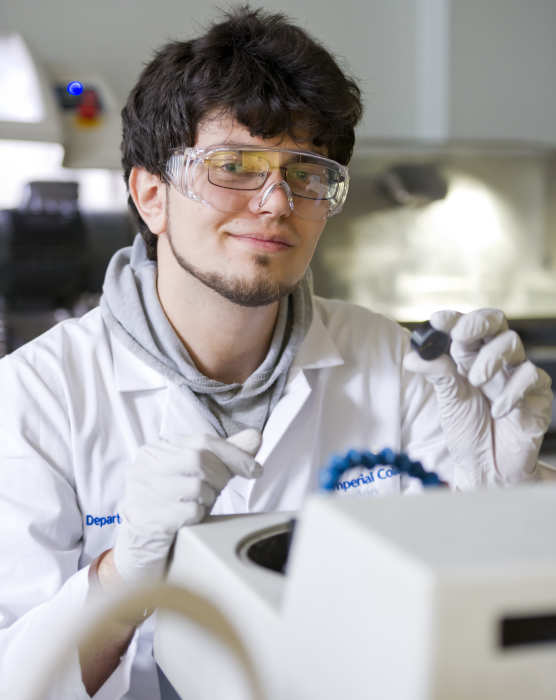I'm Alexandru Crișan and I’m currently in the 4th year and final year of my MEng in Materials Science and Engineering. At the moment, I am working on my research project on turbine blade defect removal using laser ablation.
Looking back, the reasons I first chose Imperial College London were its high ranking among British universities and its outstanding reputation for providing a solid engineering background. Even back home in România, the name of the university has weight and a quick search would reveal its rich history and the large scope of both the research carried out here.
"My good results on the project, as well as the feedback I received both upon finishing and during my placement, were a pleasant reminder that my choices in both university and department were correct"
I decided on Materials due to the diversity the course provides and its good coverage of engineering skills. I liked the feeling that it made me a jack-of-all-trades of sort. Besides the theoretical knowledge gained in lectures in Physics, Chemistry, Microstructure and Mechanical Engineering, the large number of laboratory sessions during the first and second years provides practical experience and a natural familiarity with working in such a real-life setting. This is highly valued by employers because it makes the transition into a graduate career easier and means that you already have knowledge of safety requirements and the limitations of equipment.
During the placement I carried out between my third and fourth year at Procter&Gamble I could, for the first time, judge the advantage I had gained by studying here. In those 3 months, I was a manufacturing engineer responsible with keeping the production line running smoothly, implementing changes to improve the quality of the product and determining possibilities for energy saving. Even though the position was not specifically related to Materials, my skillset proved valuable early on. My knowledge of mechanics meant I could learn the production process and the machinery faster than expected and I knew enough chemistry to quickly familiarise myself with the properties of the products. My awareness of materials properties proved a distinct advantage as I could spot improvements and assess limitations in equipment without relying on their manufacturers. Similarly, the fact that I could make the engineering drawings for my ideas meant that the process of implementing them was shorter and I could work more self-sufficiently.
My good results on the project, as well as the feedback I received both upon finishing and during my placement, were a pleasant reminder that my choice in both university and department were correct!
